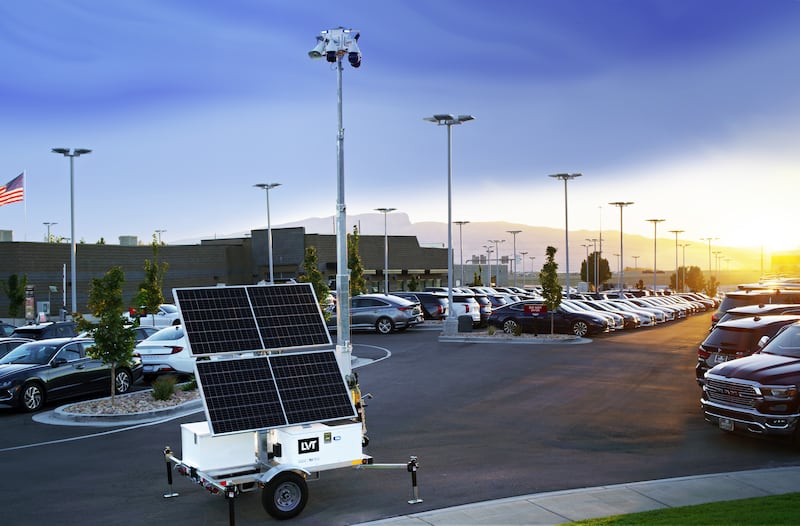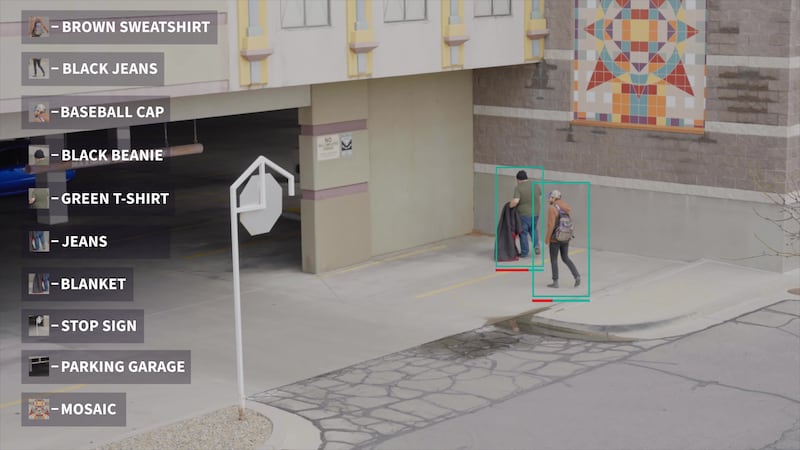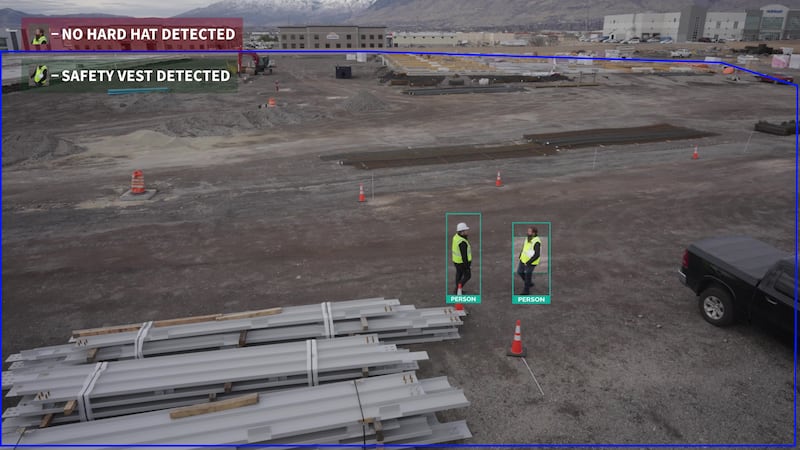While most kids dream of one day becoming a firefighter, astronaut or race car driver, Ryan Porter’s childhood dream was different. He wanted to come up with an idea no one had thought of before.
After years of patience and hard work, Porter’s dream was fulfilled through his company LiveView Technologies (LVT), of which he is the founder and CEO.
LiveView Technologies was founded in 2005 by Porter and Bob Brenner, who now serves as executive vice president of manufacturing and operations. The company started in Porter’s garage, offering video monitoring technology and installation for construction sites locally, and now is a video surveillance company providing security camera units to clients in all industries across the country.
The idea that grew
Over 20 years ago, Porter met Brenner while they were working at a mortgage company.
“We had done some deals, and we just kind of clicked,” Brenner says.
One day, Brenner approached Porter and asked him if he had any ideas on how to market mortgages, and, surprisingly, he did. Porter had the idea to put livestreaming video on construction sites, allowing homeowners to watch the progress on their new builds in real time.
“We thought of it as a marketing idea for mortgages, and that was the original concept. Then what we figured out really quickly was that there was a bigger market in the builders being able to see their projects than there was in the homeowners,” Brenner says.
The pair decided to pivot and focus on builders. They put cameras on both home construction sites and commercial construction sites. In those early days, Brenner and Porter would both be out in the field digging holes and setting poles for the cameras.
As the years went by, LVT’s product ideas evolved and adapted. One of its major innovations was the creation of the mobile security unit, which can be deployed and delivered in minutes instead of hours.

The mobile security unit is a towable trailer that includes solar panels, powerful lighting, speakers and a variety of high-end mobile security cameras that are designed to fit in a parking stall, allowing for rapid deployment and easy placement.
The company’s big break came in 2017 when the owners took a prototype mobile security unit to the ISC West show, which is the biggest security trade show in the country. While there, they made an agreement with Walmart to make two trailers for them. Within two months, LVT had a contract signed with the biggest box store company in the country.
Since then, the company has continued to grow. Today, over 94 percent of all Fortune 100 retailers use products from LVT. The company is the largest supplier of mobile security units, providing over 22 million hours of coverage monthly to its customers.
LVT has over 700 employees; in 2020, the company had fewer than 100, and in 2016, the headcount was under 25.
LVT’s ‘secret weapon’
As different people within LVT spoke about Porter, it was repeated multiple times that he has a customer mindset, which helps the company sell. However, Brenner and Porter both approach the business from different points of view.
Because of this, Brenner shared that he and Porter “never agree on anything,” but added that they don’t disagree on everything — they just have different perspectives. Porter faces most problems with the customer in mind, while Brenner thinks about how things can actually be built.
“It’s always easy to create something in your mind that will solve the customer’s problem, but then to actually build it in the real world are two different things, so sometimes he has great visions, and they’re not as easy to build as he would think it is, but he’s always been able to come up with new ways of meeting their needs,” Brenner says.
LVT’s Chief Financial Officer Andy Gale says he believes Porter is the company’s “secret weapon” when it comes to selling to customers.
“When we get in front of larger, big enterprise customers, he does such a good job of presenting the solution, listening to what they’re looking for … and making proposals and recommendations as to how to do it,” he says.
Steve Lindsey, the company’s chief information and technology officer, shared that a few years ago, the company developed a satellite trailer for Wyoming’s Department of Transportation. When it was finished, they met with the department to present it and train the team on how to use it.

But disaster struck as they were presenting. They discovered the trailer had broken down on the way to Wyoming.
As Lindsey tried to fix the problem — which was unfixable due to a bad motor — Porter took the organization’s leader on a walk. In that moment, Lindsey saw the experience as a disaster, but later that day, Porter shared that the department wanted to order three more trailers and multiple other products as well.
“He’s always had this ability to help customers get past what would be surface-level concerns and really look at the value in the relationship,” Lindsey says.
Gale echoes that sentiment.
“He has a really, really deep knowledge of the technology of the business; his ability to grasp stuff quickly and then to retain that information over long periods of time is really, really impressive, and then there’s just a genuineness about him,” Gale says.
Leading with a cool demeanor
Lindsey compared Porter to former Brigham Young University football coach LaVell Edwards because he never has high highs or low lows; he’s just very even-tempered.
“A lot of people will get intimidated by him because of that kind of LaVell Edwards demeanor. They don’t know if he’s happy or sad … but he really does care underneath. And he puts people first,” Lindsey says.
Gale adds that he’s never seen Porter get really upset about something and lose his cool. He also says Porter leads by example.
“I’m pretty even-keeled,” Porter says. “I try not to overreact. I try to focus on facts and data and not involve emotion in response. So, I think that’s been helpful for me.”
As the company has grown, Porter says he has learned to surround himself with great people in order for great things to be done.
“If we can collectively take that knowledge and that experience … then you can usually solve any problem or make any decision,” he says.

A belief in putting family first
As Porter has worked to build LVT, he and his wife Jackie have also been raising their four children, who range in age from 16 to 23.
Porter’s two older children, who grew up as the company did, both work at LVT. Kayce Porter, the oldest, works as a field marketing manager and has been at the company since 2020.
“It’s interesting to be able to see him at work and see him be this very serious person, and then go home and see the silly, goofy side of him,” Kayce says.
Kayce says she has learned a lot about hard work from her dad as she’s seen LVT grow, adding that during the first 15 years of the company, everything was paycheck to paycheck.
“Growing up, I didn’t question anything. I was like, ‘Oh, my dad goes to work, and then he comes home, and then we play in the yard.’ And it wasn’t until I got older that I realized how much hard work he actually did,” Kayce says.
Porter says LVT is not a company that expects people to work around the clock or sacrifice time with their family.
He added that he believes the company can be profitable and have great business metrics, but that you can still believe in and prioritize families while doing that.
“That doesn’t mean that every day is easy, but a balance between work and family is critical,” Porter says. “I don’t believe you have to sacrifice family relationships to have a successful company.”


